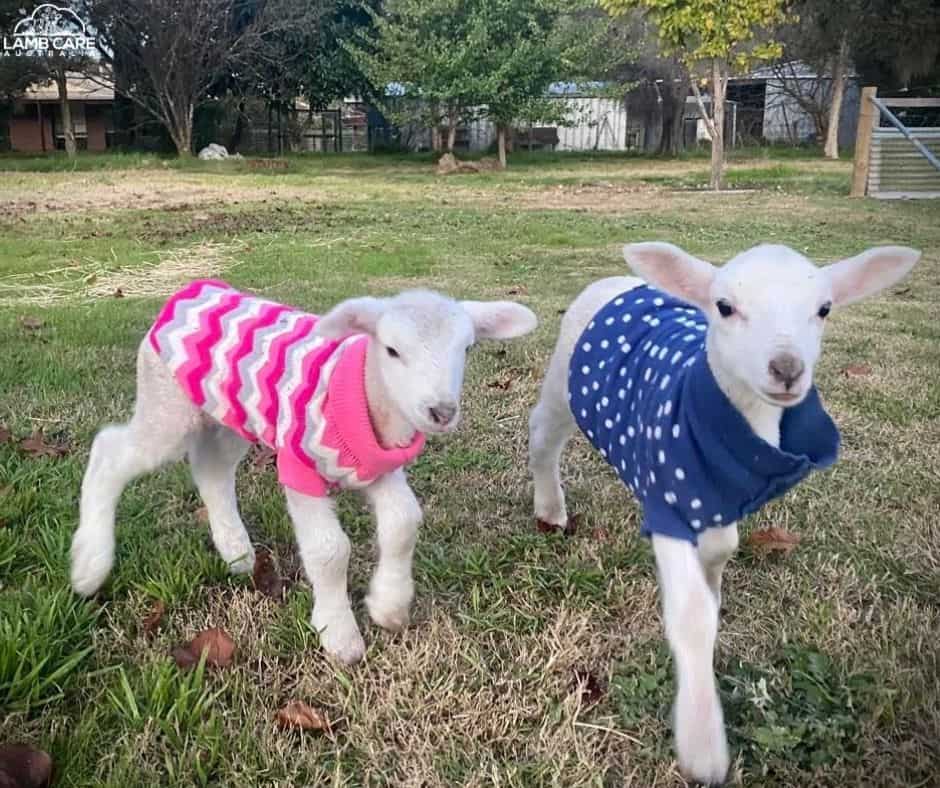
Bloat in Lambs
What is Bloat in Lambs?
Bloat in lambs is a common health issue that unfortunately can kill if not treated early. It occurs when gas forms and accumulates in part of the gut called the abomasal (stomach) and cannot be released. The buildup of gas causes the stomach to distend.
Bloat in lambs is a medical emergency and MUST be dealt with quickly. It can be fatal because if the gas continues to build it squashes all the internal organs and the lamb can die in terrible pain.
There are 2 types of bloat in lambs: Abomasal and Frothy
Abomasal Bloat
Affects bottle fed lambs mostly up to around 4 weeks of age. While the mechanism of abomasal bloat is not completely understood, it is believed to be caused by a build-up of bacteria in the stomach. As the bacteria multiply, the sugars in the milk ferment with excess gas production. At the same time, the stomach becomes more acidic to the detriment of other bacteria. As the gas cannot escape, it bloats the abomasum (stomach). Left untreated a lamb will die.
Bloat in Lambs Symptoms
Lethargy
Swollen stomach
Disinterest in food
Stretching out body
Unwillingness to sit or lay down
Teeth grinding (pain response)
Unsteady on legs
Rapid shallow breathing
Bloat in Lambs Treatment
At the first signs of bloat it is vital to act quickly. Do not wait for things to get worse and do not hesitate to call your vet for prompt advice.
Mix ¾ cup of water with ½ cup of baking soda and syringe some (carefully) into the lambs mouth. This will help neutralise the gas.
Massage the lambs stomach area, this helps the gas move. The lamb may belch or pass gas, this is a good thing.
Powdered ginger may help with mild cases of bloat. Mix two tablespoons of ginger in a small amount of warm water and administer with a syringe. Ginger has traditionally been used for the treatment of gastro-intestinal ailments. Pain meds may also be given to affected lambs.
Hold off giving any food
The vet may need to insert a tube into the lambs stomach to help the gas escape or a needle may need to be inserted into the stomach.
If you have penicillin on hand, give 2ml into the muscle and another 2ml orally.
Bloat in Lambs Prevention
Milk that has been overheated is a cause of bloating in lambs. Ensure the milk is never heated above tepid. When checked on your wrist before feeding it should feel just warm.
Adding some yoghurt to the milk or probiotics may also help in bloat prevention
Feed correct amounts. NEVER feed off milk packet directions as the amount each lamb needs and the frequency of feeding varies from lamb to lamb.
Ensure hygiene is used with bottle preparation
Never change milk brands abruptly. If a milk powder needs to be changed it must be done gradually (¼ new milk with ¾ current then gradually it is increased ½ new milk with ½ current, ¾ new milk with ¼ old)
Do not reheat milk. If there are leftovers from a bottle dispose of the remainder
Frothy Bloat
Frothy bloat presents the same way as abomasal bloat but the cause is different. Usually it occurs when lambs have been put on pasture that is too rich. Lucerne is a common cause of bloating in young sheep so we do not advise feeding it to your lambs. Normal grass hay is recommended. With frothy bloat gas is unable to escape because a frothy substance stops it from being expelled. Also a medical emergency we recommend you contact your veterinarian as soon as you notice symptoms.
Bloat in Lambs Symptoms
Lethargy
Swollen stomach
Disinterest in food
Stretching out body
Unwillingness to sit or lay down
Teeth grinding (pain response)
Unsteady on legs
Bloat in Lambs Treatment
Contact vet
Massage stomach area
Withhold food
Bloat in Lambs
Prevention
Do not offer lucerne or clover/alfalfa as it is too rich
Do not allow overfeeding
When first being introduced to fresh pasture monitor closely for signs of bloating
Offer a high grade grass hay
